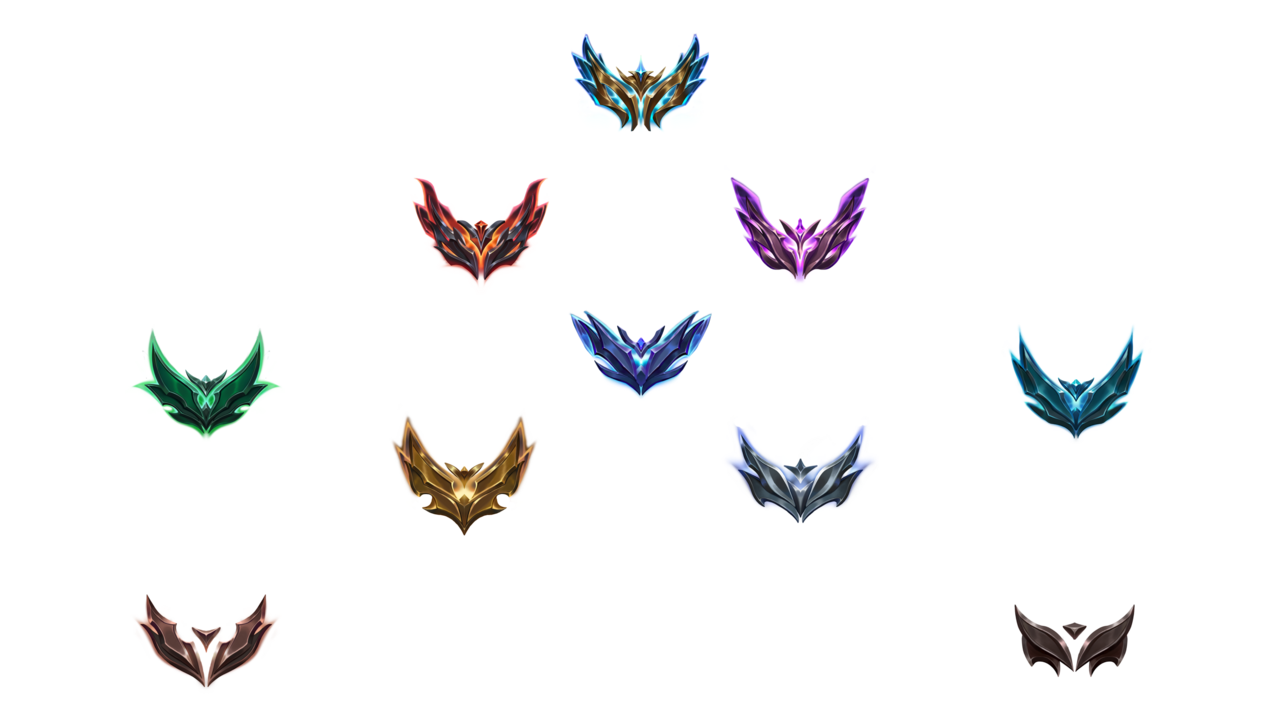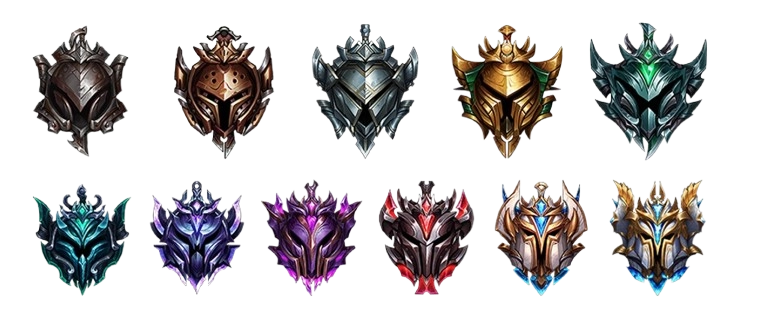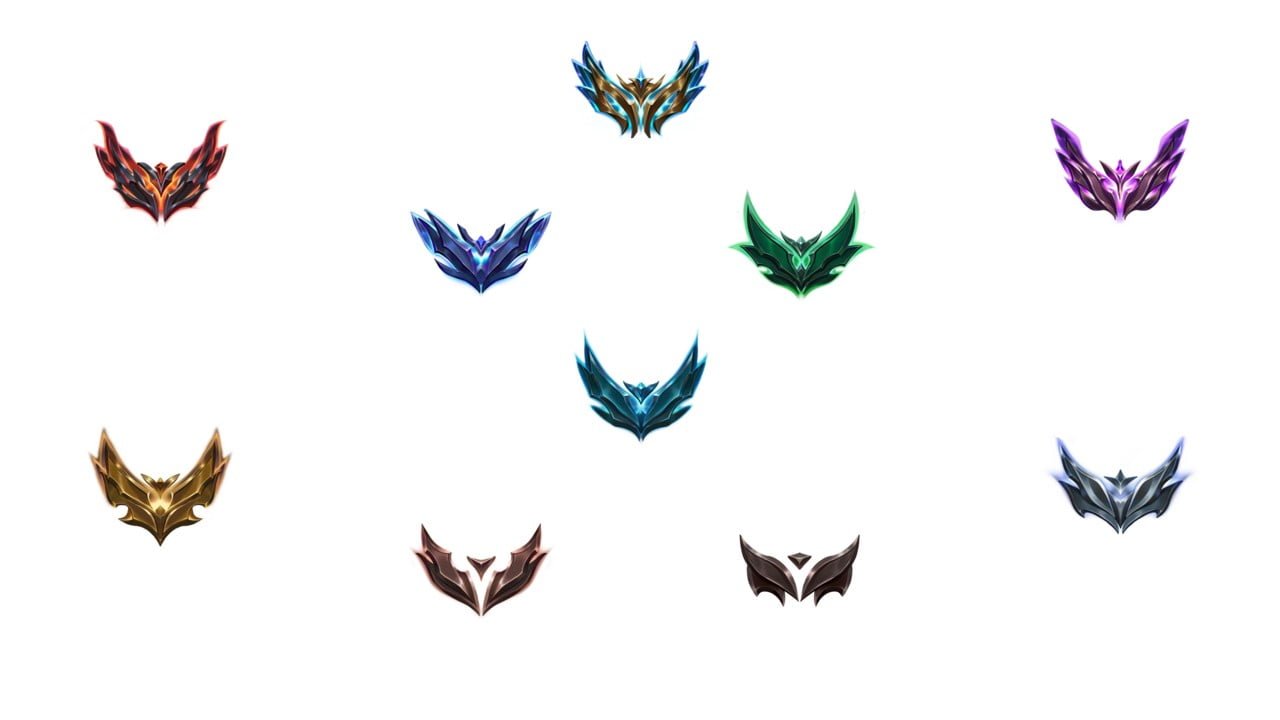
League of Legends, Riot Games’ globally celebrated MOBA, features a robust and competitive ranking system designed to match players of similar skill levels. For the 2025 season, the system remains largely consistent, offering a challenging climb for players aiming to prove their prowess. There are a total of 10 primary ranks in LoL, spanning from Iron to Challenger, including Bronze, Silver, Gold, Platinum, Emerald, Diamond, Master, and Grandmaster. Each of these ranks, except for the top three (Master, Grandmaster, Challenger), is further divided into four divisions (IV, III, II, I). Understanding this hierarchy and how the underlying mechanics work is crucial for anyone looking to ascend the ladder.
How Many LoL Ranks Are There?
The journey through League of Legends’ ranked ladder is an adventure that tests a player’s mechanics, strategic thinking, and mental fortitude. Here’s a breakdown of each rank in the game, from the very bottom to the absolute pinnacle, as it stands in the 2025 ranked season:
Iron: The Foundational Tier

Iron is the starting point for players new to competitive LoL or those still refining their basic game understanding. Matches here are often characterized by less objective control, limited communication, and fundamental mechanical execution. It’s the perfect place to learn the game’s core principles without the immense pressure of higher tiers.
Bronze: Taking Your First Steps

Players in Bronze begin to demonstrate a foundational grasp of roles and some in-game mechanics. However, there’s still ample room for improvement in areas like farming efficiency, vision control, and macro decision-making. Persistence is key to breaking out of this tier.
Silver: Overcoming Early Hurdles

By Silver, players typically have a decent understanding of the game’s fundamentals. Champion mechanics are generally more consistent, and objective control starts to play a role, though team coordination and rotations often remain common weaknesses.
Gold: The Expert Threshold

Gold is often considered the point where players have moved beyond the beginner phase and established a solid base in the game. Good mechanical execution, efficient farming, and a basic understanding of team compositions and game phases are expected here. It’s a significant milestone for many players in the 2025 season.
Platinum: Solidifying Mastery

Reaching Platinum signifies that you are a player with above-average skill. In this tier, decision-making is quicker, mechanics are more refined, and an understanding of map control and wave management becomes more apparent. Matches are more structured and competitive.
Emerald: The New Elite

Introduced in recent seasons and remaining a key part of the 2025 ranked experience, Emerald sits between Platinum and Diamond. It serves as a new bridge for highly skilled players who are on the cusp of breaking into the highest tiers. Here, the skill gap becomes more pronounced, and every mistake can significantly impact the game’s outcome.
Diamond: The Pinnacle of Skill

Diamond represents the top tier of LoL players. Those in this rank exhibit exceptional mastery of mechanics, decision-making, vision control, resource management, and in-game adaptation. Matches are intense, and team coordination is paramount. Only a small percentage of players worldwide reach this level.
Master: Accessing the Apex Tier

From Master tier onwards, the numbered division system (IV, III, II, I) disappears. Players in these apex tiers compete directly for a spot on the global leaderboard. Master is the first step into the truly elite ranks, where players are exceptional and often capable of competing with professional players. The skill difference between a low Master and high Master player can be substantial.
Grandmaster: Battling for Supremacy

This tier comprises the most dominant players in each region, just below Challenger. Grandmaster players are constantly battling for the top spots on the ladder, and competition is fierce. Every match is a high-stakes challenge where consistency, adaptability, and innovative strategies are vital.
Challenger: The Ultimate Summit

Challenger is the highest and most exclusive rank in League of Legends. Only the top 300 players (this number can vary slightly by region) in each region can attain this prestigious status. At this level, individual skill is almost indistinguishable, and the difference between players often comes down to superior strategy, unwavering consistency, and the ability to adapt to constantly evolving metagames. It’s the dream of every serious LoL player.
LoL Rank Distribution
The distribution of players across LoL ranks follows a bell curve:
| LoL Rank | Percentage of Players |
|---|---|
| Iron | 14% |
| Bronze | 21% |
| Silver | 22% |
| Gold | 18% |
| Platinum | 12% |
| Emerald | 8% |
| Diamond | 2.4% |
| Master | 0.33% |
| Grandmaster | 0.052% |
| Challenger | 0.021% |
How the LoL Ranked System Works in 2025: LP and MMR Explained
League Points (LP) are the visible representation of your progress in Ranked matches. You gain LP by winning Ranked matches and lose LP by losing them. To advance from one division to another (e.g., Silver IV to Silver III), you need to accumulate 100 LP. Once you reach 100 LP, you enter a “Promotion Series.”
Matchmaking Rating (MMR): The Hidden Engine Behind Your Rank
Your Matchmaking Rating (MMR) is a hidden value Riot Games uses to determine your true skill level and to match you with players of similar ability. Think of MMR as your internal Elo score. When your MMR is significantly higher than the average for your current rank, the system believes you should be in a higher rank and grants you more LP for victories while taking fewer for losses. Conversely, if your MMR is low for your current rank, you’ll gain less LP and lose more.
MMR’s Impact on Your LP Gains and Losses
Your MMR is the primary determinant of how much LP you gain or lose. If your MMR is much higher than your current league, you might gain 25-30 LP per win and lose only 10-15 LP per loss. This is often referred to as “inflated LP” or “accelerated LP” and indicates the system wants to push you up quickly. If your MMR is below your league, you might gain 15-20 LP and lose 20-25 LP. This suggests the system believes your current rank is too high for your actual skill level.
Promotions, Demotions, and Rank Decay in LoL
If your LP drops to 0 and you lose several matches in a row, you risk being demoted to a lower division (e.g., Silver II to Silver III). If you’re in Division IV of a rank (e.g., Platinum IV) and your MMR drops significantly below the average for that rank, and you keep losing matches with 0 LP, you’ll be demoted to the next lower rank (e.g., Gold I). The system usually gives you a temporary “relegation shield” after you reach a new rank, which protects you from immediate demotion.
Rank Decay: Staying Active in High Tiers
For Diamond, Master, Grandmaster, and Challenger tiers, a rank decay system is in place for the 2025 season. If a player does not play ranked games for an extended period (typically 28 days for Diamond, and 10 days for Master+), they will start to lose LP daily. This mechanism ensures that only active and skilled players maintain their positions in the highest ranks. Below Diamond, there is no rank decay.
Frequently Asked Questions (FAQ) About LoL Ranks
Conclusion: Your Journey to the Top of League of Legends
The LoL ranks system is a fundamental pillar of the competitive League of Legends experience. Understanding its complexities, from LP and MMR to promotion series and decay, is the first step towards mastering the ranked ladder. Remember that improvement is a constant journey; apply the tips, maintain a positive mindset, and most importantly, enjoy the process of climbing the Summoner’s Rift in the 2025 season. Your effort will certainly be reflected in your rank!

